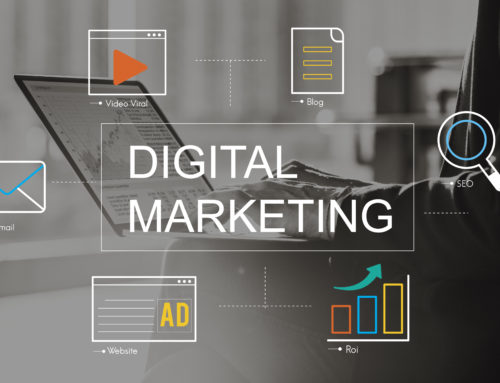This wise marketer provides several pearls about reviews, websites, optimization, Adwords, and overall strategy.
Richard J. Symmes is the founder and owner of Symmes Law Group, PLLC in Seattle, WA. He’s a solo attorney and founded his practice in 2010 with just a few years of legal experience behind him.
His primary practice areas include bankruptcy, foreclosure defense, fair credit reporting act, credit restoration, and debt settlement. He also occasionally works in trademarks and business law. Before launching his own practice, Symmes was an associate attorney at two other respected law firms in Denver, CO.
Symmes has used SEO as one of his primary marketing strategies with much success. I recently asked him about his approach to obtaining high organic search engine rankings and other online marketing techniques.
Content Marketing and SEO
Symmes blogs regularly and a major part of that process involves optimizing for keywords. “Anybody who is blogging or has a website should first and foremost generate content that will be useful to consumers,” he says, adding, “This is good for Google.” However, he’s quick to warn that you shouldn’t overly “stuff” your content with keyword and phrases. Instead you, “should write the article as if you were talking to a friend or potential client.” He also uses anchor text, which are linked keywords, that point to internal pages on his site a few times in each article. Linking to other useful information on external sources is a good idea, too.
“I used to manage all of my own SEO and was very successful up until the Hummingbird update in May 2013,” Symmes says. “I have tried to use various cost effective solutions but I just rolled out my new responsive website and am giving my website guy who I have been with since 2010 a shot to see what he can do,” he says. But he doesn’t just want to rank for high profile keywords. He also wants to rank for his blog posts, “as those long tail keywords [are] what people tend to search for most.”
And that’s where he get his ideas for blog posts, too. He thinks about, “what questions consumers might have,” so he can then “give them the answers they are looking for.” Reading a lot helps, too, as he often pulls ideas from what he’s read on other legal blogs and marketing podcasts.
Symmes’ new website just launched in April 2014 but he’s by no means done with it. “I am constantly tweaking things for best results,” he says. He also has plans to move his trademark and business practice areas to a different website with a different blog. “Consumers want to see somebody who is a specialist in certain areas of the law,” he says.
He keeps track of site visitors and traffic using Google Analytics and Google Webmaster Tools. “Also, my web guy is giving me monthly reports now that I am on board with him for SEO,” he says. He suggests www.serpfox.com as a free way to track your ranking for specific keywords, too.
But he’s quick to point out, a good website won’t make the sale for you. “It will only bring you the potential lead.”
One thing that does have the potential of turning a prospect into a client is reading positive reviews about an attorney. Symmes’ Google Local profile comes up in the search results for several keywords, displaying his 5-star rating prominently. “Reviews are very important in online searches and consumer confidence,” he says and is quick to add, “I have been told by clients that it is why they called me instead of others because they liked the reviews I had.”
Advertising & Budget
Symmes does use Google Adwords, but he cautions against its potentially expensive nature. “I am not a big fan of Google Adwords as it can get expensive and is getting more and more competitive,” he says. “Up to this point I have ran my practice on a tight marketing budget [and] I have had mixed results with Adwords, and I’m sure I did no worse than breaking even, but that’s not the point of marketing,”
He’s been thinking about hiring someone to manage a PPC account for him but he’s unsure as to whether or not someone else could do a better job. “All I hear the PPC marketers say is that I need to increase my budget (and pay them a commission to manage),” he says.
Of course, spending more often means bringing in more business. “But will you come out ahead?” he asks. Ultimately, Symmes believes it depends on each lawyer’s practice area. “I would not recommend targeting the most expensive keywords when long tail keywords can be very cheap and reap big rewards,” he says.
A reasonable startup advertising budget to Symmes is “no more than $2K,” he says, though this does depend on what the attorney’s goals are.
“Is it to run a successful small solo practice?” he asks, “Or do you want to have many employees and handle many more cases?” If it’s the latter, a bigger risk might be required in the advertising department to get enough business to pay everyone on staff. “This of course has caused many attorneys to dig a hole that they couldn’t get out of so I would advise starting small and growing from there,” he says.
And in terms of spending on a website? According to Symmes, a lawyer doesn’t need to spend more than $4K for a high quality site.
Symmes is on all the major legal directories, including Avvo, though he doesn’t currently rank highly within the site’s organic search. “My goal is to improve my profile ranking as I have seen that Avvo has become one of the top ranking websites for many of the most sought after keywords in my city,” he says, and points out that Avvo’s headquarters are based in Seattle. He wouldn’t put up money to advertise on Avvo, however, because doesn’t think their “cost would generate enough business to make it worthwhile.” Though he admits this is just an assumption as he hasn’t tried it. Still, he makes a good point: “If I had to choose spending money on Avvo vs. Adwords, I would choose Adwords.”
As for social media, he’s on Facebook, LinkedIn, Google+, and Twitter, but it’s not so much about lead generation for him. Rather, he uses social media to keep his contacts, “informed on what I am doing,” and it helps him to demonstrate his knowledge in the field.
Parting Advice
For online marketing success, “You have to have a plan of action and stick with it,” Symmes says. “If you are not disciplined to blog constantly and take an active role in your SEO and monitor your rankings and take action to get to where you want to go you may end up spending a lot of money on online marketing and SEO people who all guarantee a first page ranking which of course can’t work out for everyone.”
To avoid running into this problem, his solution is simple: “Keep a lean budget and see what you can accomplish on your own.”
Also, don’t sign long-term marketing contracts. “You never know what online algorithm changes may take hold and you don’t want to be locked into a contract that doesn’t produce new clients if things don’t work out,” he advises.
Symmes also doesn’t recommend pay-per-lead advertising like Total Attorneys or Lead Rivals. “It’s good to get people in the door when you are starting out,” he says, “but I would not recommend using a long-term pay-per-lead strategy unless you have a staff which is constantly following up with these potential leads.”
Before our discussion ended, Symmes admitted to one mistake: relying on Internet marketing alone. “You shouldn’t rely on one marketing source,” he says. If your website goes down or you incur a Google penalty, “you need to have a backup plan, whether that be from referral sources or other means.”
He does have a solid list of referral sources now, thankfully, and a plan of action should the worst occur: “If I have to, I can rely on Google Adwords until I can get back in the saddle with organic rankings,” he says.



